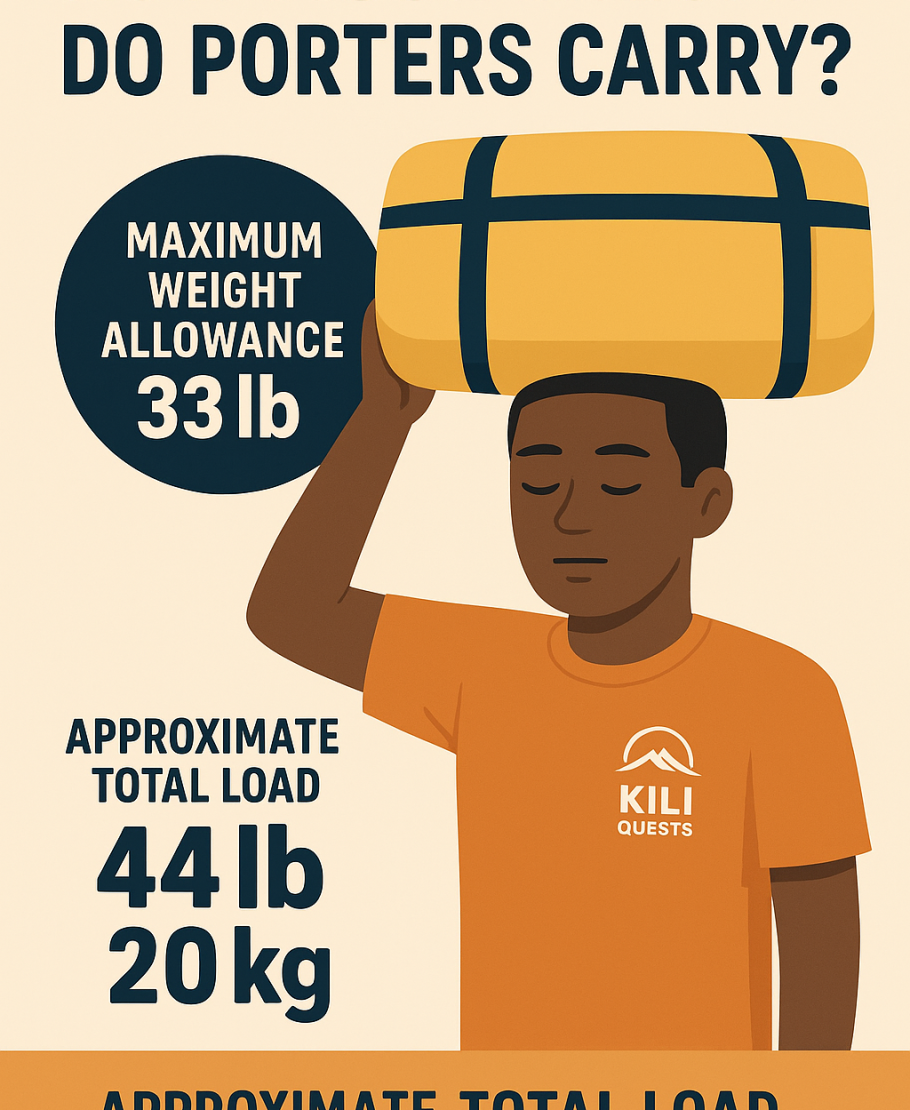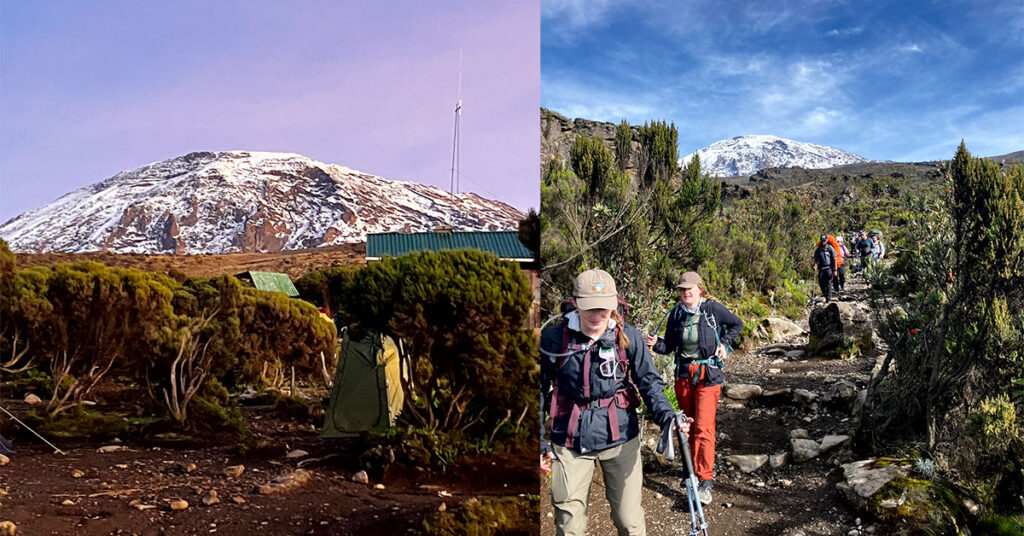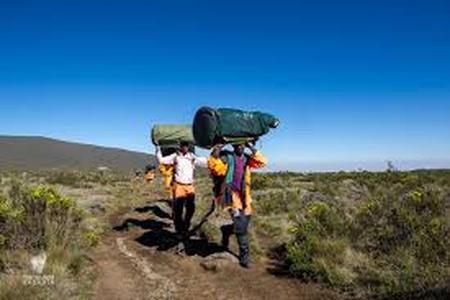Table of Contents
How Much Weight Does a Kilimanjaro Porter Carry? | Kili Quests
When trekking Mount Kilimanjaro, porters play a crucial role in your success. They carry essential gear, set up camps, and help make your journey smoother. But how much do these hardworking individuals carry — and how are they protected?
Let’s explore the weight limits, regulations, and ethical guidelines that ensure porters are treated fairly — and how you, as a trekker, can help.
What Porters Do Behind the Scenes – Explore the daily efforts and responsibilities of your support crew.

Kilimanjaro Porter Weight Limit: 15–20 kg
Each Kilimanjaro porter is allowed to carry up to 20 kg (44 lbs) of client gear, as per Kilimanjaro National Park Authority (KINAPA) regulations.
This weight often includes:
- Trekker’s duffel bag (clothing, sleeping bag)
- Food supplies
- Camping equipment
On average, porters carry 15–20 kg of client gear, plus 5–7 kg of their own belongings.
How the Load Is Divided
Your load is carefully distributed to ensure safety and fairness:
- You carry: a small daypack (5–7 kg) with water, snacks, jacket, etc.
- Porters carry: the rest of your gear, shared across the team
- Group gear (tents, cooking items) is divided among several porters
See our full breakdown in How Many Porters You Need for a Kilimanjaro Trek.
Ethical Porter Guidelines: What KINAPA Requires
Ethical trekking companies like Kili Quests follow strict rules to protect porter welfare:
- Max weight: 20 kg (client load only)
- Fair wages: Paid based on load, route, and trek days
- Proper clothing: Warm jackets, boots, rain protection
- Meal provisions: Porters are fed daily and sleep in provided tents
- Breaks and rest: Scheduled rest periods to prevent exhaustion
Why Weight Limits Matter
Respecting porter weight limits supports:
- Porter safety – Reduces risk of injury and strain
- Sustainable tourism – Helps maintain fair labor standards
- Ethical climbing – Ensures your trek aligns with responsible travel practices
Understand fair compensation with our Kilimanjaro Tipping Guide.
your climb.
Trekker Tips: Supporting Your Porters
Here’s how you can make the climb easier and more ethical:
- Pack light: Only bring essentials – extra weight means more load for porters
- Tip well: Tips make up a large part of a porter’s income
- Be kind: A simple “thank you” or smile means a lot
- Report abuse: Only trek with companies that treat their crew with respect
Kilimanjaro Trekking Rules – Discover the weight regulations and porter welfare policies enforced by the park.

Kilimanjaro Porter FAQs
Q1: How many porters are assigned per trekker?
- It varies by route and gear, but typically 2–3 porters per trekker are assigned to cover personal and group loads.
Q2: What happens if a porter carries too much?
- Overloading porters is strictly prohibited. Companies like Kili Quests enforce weight checks before departure.
Q3: Are porters given food and shelter?
- Yes. All ethical operators provide food, tents, and support proper mountain gear for their porters.
Choose Ethical Trekking with Kili Quests
At Kili Quests, we:
- Follow all porter weight limits
- Equip our crew with proper gear
- Pay fair wages and offer good working conditions
- Educate our clients about responsible trekking
Contact Us to plan your Kilimanjaro trek with a company that respects the mountain and its people.Ready for the climb? Let’s reach the summit together—ethically and safely.
Related Articles

Summit Night Essentials: Kilimanjaro Gear & Packing Tips
April 10, 2025
No Comments
Table of Contents Kilimanjaro Summit Day Gear Guide | Kili Quests Summit day on Mount Kilimanjaro is the toughest — and most unforgettable —

How to Get Internet on Mount Kilimanjaro | Connectivity Tips
December 13, 2024
No Comments
Table of Contents Internet Access on Kilimanjaro: What to Know | Kili Quests Wondering if you can stay connected during your Mount Kilimanjaro trek?Whether

Kilimanjaro Trek: How Many Porters You’ll Need
April 15, 2025
No Comments
Table of Contents How Many Porters Do You Need for a Kilimanjaro Trek? | Kili Quests Why Porters Matter Climbing Kilimanjaro isn’t just about


